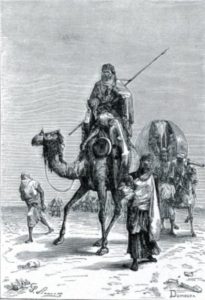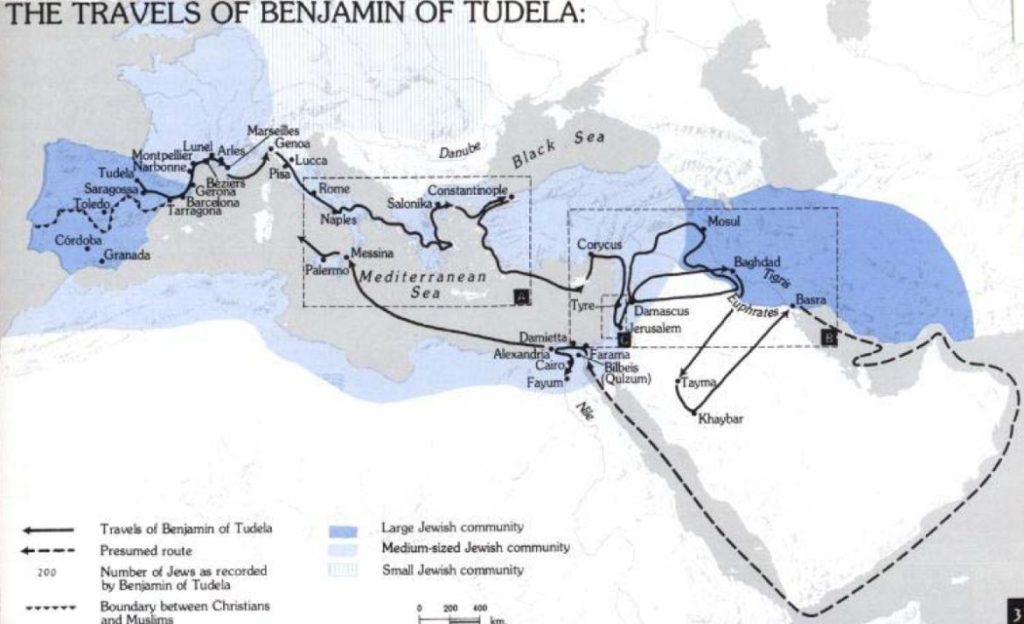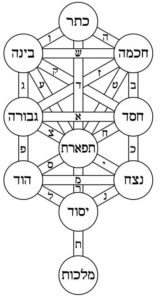The Jew Who Inspired Marco Polo

A 19th century engraving of ‘Benjamin of Tudela in the Sahara’
Binyamin MiTudela (1130-1173) was born to a religious Sephardic family in the town of Tudela, now in Spain. In 1165, he set out for what is believed to be a pilgrimage to Jerusalem. He had a larger objective in mind as well, since this was at the height of the Crusades and a perilous time for anyone to make a pilgrimage, especially Jews. Binyamin wanted to explore all the Jewish communities along the way and to create a detailed map showing the route one should take and where a Jew can find safe refuge on his journey. This would open the door for more Jews to take a trip to their beloved Holy Land. A lover of history and geography, he also wished to leave a record of what the Jewish (and non-Jewish) world looked like in the 12th century. Binyamin recorded all that he saw in his Sefer haMasa’at, “Book of Travels”, also known as Masa’aot Binyamin. His adventures were so popular they were soon translated into just about every European language. Today, the book is among the most important historical documents for scholars of the Middle Ages and the Renaissance, as well as of Jewish and Muslim history. A great deal of what we know about that era, including the daily lives of simple people, comes from his book. Some believe that it was this book that may have inspired another, more famous, adventurer about a century later: Marco Polo. Binyamin’s travels took him to France and the Italian Peninsula, then to Greece and across what is today Turkey to the Near East, then to Persia, back around the Arabian Peninsula, to Egypt, and returning to Iberia by way of North Africa. While in Ethiopia, he describes a large Jewish community, which was a key source of information allowing modern-day Ethiopian Jews to be accepted by the State of Israel and the rabbinate. He is possibly the first writer to detail the community of Al-Hashishin, better known as “Assassins”, as well as among the first to describe the Druze. In Posquières, he meets and describes the great Raavad. In Rome, he sees a Rabbi Yechiel, who is an advisor to the Pope, and has “free access to the Pope’s palace”! While in Baghdad, he writes of the Caliph, who is “like a Pope” for Muslims, and that the Caliph is fluent in Hebrew and knows Torah law extensively, though he rules with an iron fist. All in all, Benjamin of Tudela visited and wrote about some 300 cities. Today, there are streets named after him in Jerusalem and in Tudela, Spain, where there is also a high school bearing his name.
Words of the Week
One day I learned that dreams exist to come true, and since that day I do not sleep for rest. I sleep just to dream.
– Walt Disney


